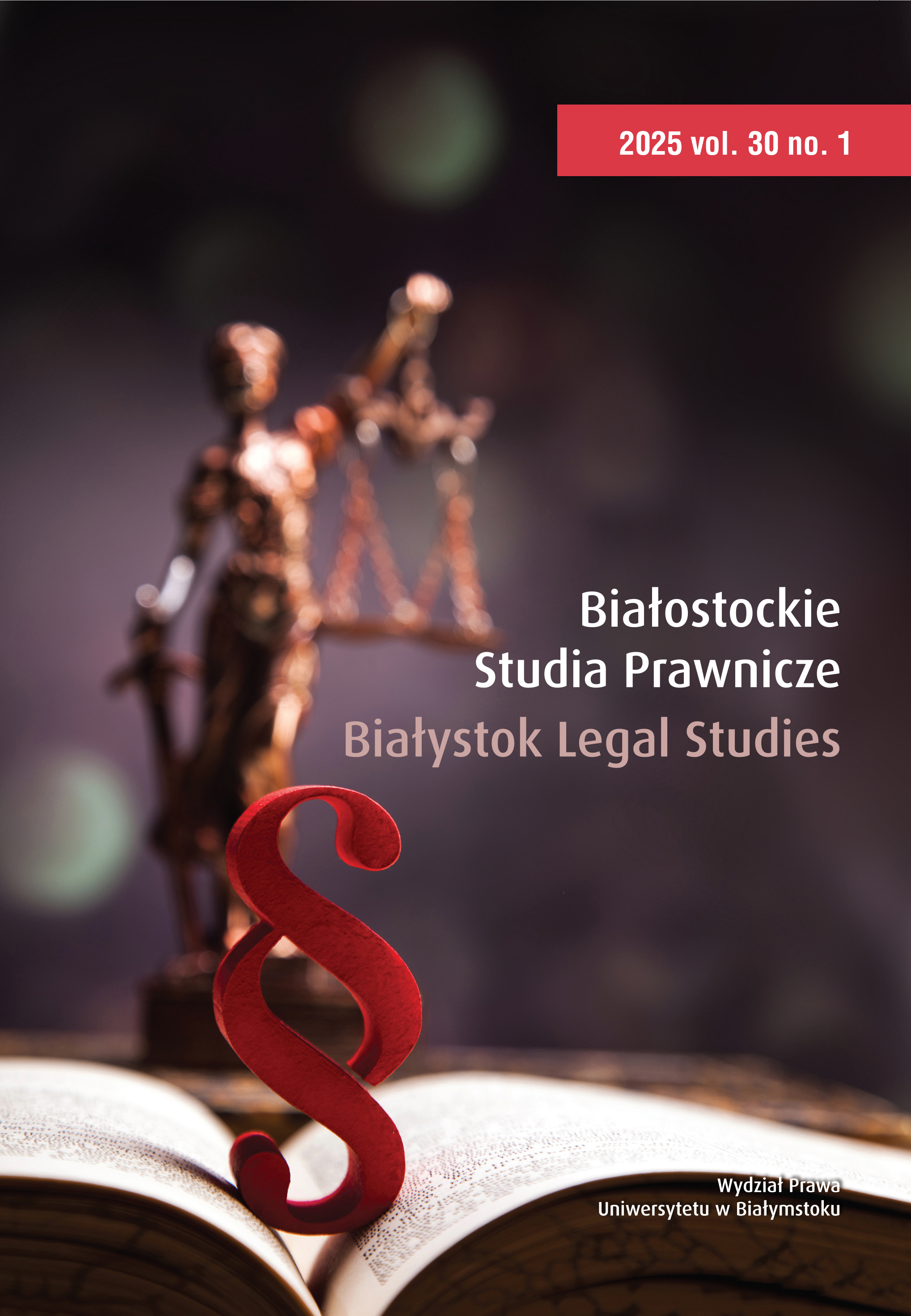 Tom 30 Nr 1: Białostockie Studia Prawnicze
Tom 30 Nr 1: Białostockie Studia Prawnicze
O czasopiśmie
Cele i zakres tematyczny czasopisma
„Białostockie Studia Prawnicze” (BSP) są kwartalnikiem wydawanym przez Wydział Prawa Uniwersytetu w Białymstoku ukazującym się od 2006 r. Wszystkie numery mają charakter tematyczny (tematy najbliższych numerów dostępne są pod adresem: link ) i obejmują publikacje z różnych dziedzin prawa skupione wokół zagadnienia głównego. Poruszane są w nich aktualne problemy z zakresu prawa. Autorami publikacji są zarówno teoretycy, jak też praktycy z kraju i z zagranicy.
„Białostockie Studia Prawnicze” to jedno z wiodących polskich czasopism prawniczych o międzynarodowym profilu, indeksowane w bazach: Scopus, ERIH+, ICI Journals Master List, NORWEGIAN REGISTER FOR SCIENTIFIC JOURNALS, SERIES AND PUBLISHERS, CEJSH, CEEOL, ANVUR, HeinOnline.
Wszystkie teksty publikowane w BSP są recenzowane. W czasopiśmie publikowane są artykuły naukowe i glosy.
Artykuły są publikowane w języku polskim i angielskim.
Odwiedź nas na Facebook'u
Warunki licencji Creative Commons
Deklaracja Open Access
BSP ukazuje się w wolnym dostępie (open access). Oznacza to, że cała zawartość czasopisma jest dostępna nieodpłatnie dla użytkowników, w tym instytucji. Użytkownicy mogą czytać, pobierać, kopiować, rozpowszechniać, drukować, przeszukiwać pełen tekst każdego z artykułów, jak również publikować do niego odnośniki bez uzyskiwania zgody wydawcy czy Autora.
Wersją pierwotną czasopisma była wersja drukowana. Od 2021 r. czasopismo ukazuje się wyłącznie w wersji elektronicznej.
Polityka antyplagiatowa
Redakcja korzysta z systemu antyplagiatowego Similarity Check System. System zapewnienia, że publikowane w czasopiśmie treści są oryginalne i godne zaufania. System pozwala na kompleksową kontrolę opracowań, mającą na celu wyeliminowanie potencjalnych plagiatów oraz zapewnienie wysokiego standardu i jakości przebiegu procesu redakcyjnego.
Liczba punktów na liście MNiSW
„Białostockie Studia Prawnicze” znajdują się w wykazie czasopism naukowych prowadzonym przez Ministra Nauki i Szkolnictwa Wyższego na potrzeby oceny jednostek naukowych z przyznaną liczbą 140 punktów.
|
Bazy indeksujące Czasopismo Naukowe „Białostockie Studia Prawnicze”:
|
| |
| |
| |
| |
| Repozytoria udostępniające Czasopismo Naukowe „Białostockie Studia Prawnicze” |
| Podlaska Biblioteka Cyfrowa |
| PBN – Polska Bibliografia Naukowa |
| Repozytorium UwB |
 |
Czasopismo „Białostockie Studia Prawnicze” otrzymało dofinansowanie na stworzenie strony internetowej BSP w ramach umowy nr 771/P-DUN/2017 ze środków Ministra Nauki i Szkolnictwa Wyższego przeznaczonych na działalność upowszechniającą naukę. | Stworzenie anglojęzycznych wersji wydawanych publikacji w "Białostockich Studiach Prawniczych" finansowane w ramach umowy 548/P-DUN/2016 i 548/1/P-DUN/2016 ze środków Ministra Nauki i Szkolnictwa Wyższego przeznaczonych na działalność upowszechniającą naukę. |
e-ISSN: 2719-9452
Wydawca: Wydział Prawa Uniwersytetu w Białymstoku
Wydawca elektroniczny: De Gruyter


